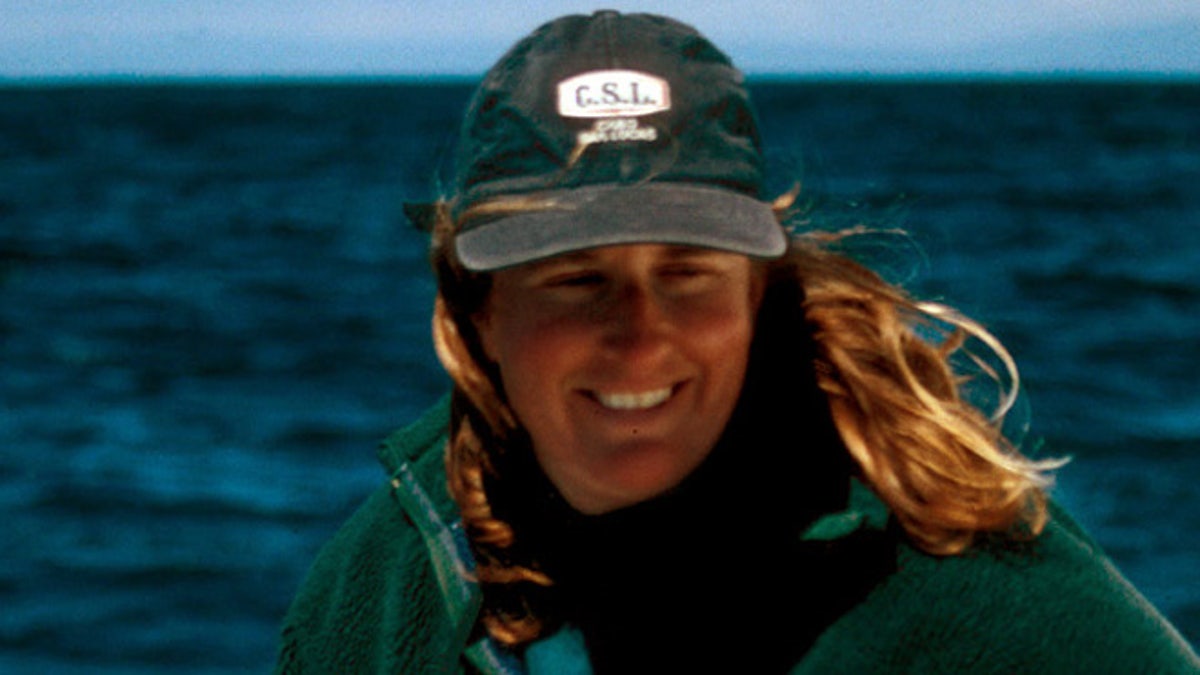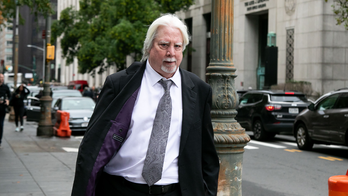
Marine biologist Nancy Black was brought up on criminal charges for feeding whales. (Alisa Shulman-Janiger)
WASHINGTON – A Marine biologist who for seven years was hounded by federal authorities – after she made the mistake of feeding killer whales in the wild -- has finally seen her case come to an end, pleading guilty earlier this week to a misdemeanor.
But her case has caught the attention of advocates who say this is another example of heavy-handed prosecution, making criminals out of otherwise law-abiding people while sidelining their careers.
“I never thought I would spend seven years of my life fighting the government over my devotion to researching marine animals,” Nancy Black, the defendant, told FoxNews.com in an e-mail Thursday.
Black, who lives in California, landed on the feds’ radar in 2004, when prosecutors accused her of endangering the lives of humans by feeding killer whales in the wild. In a separate incident a year later, they accused her of doctoring a videotape that showed members of her crew harassing an endangered humpback whale in the Monterey Bay National Marine Sanctuary and then lying about it.
Although similar instances in the past with other people had yielded fines, the government apparently was determined to make an example out of Black -- and so they went after her. Hard. Before she eventually pleaded down to a misdemeanor, the original charges carried 27 years in prison.
“I have had to put my research and my life on hold because of this case but thanks to my legal team, I am able to start putting everything back together and get back to work,” Black said Thursday.
Black is the first person to be criminally charged with violating the Marine Mammal Protection Act, which prohibits feeding marine mammals in the wild.
She knows what she did was against the law.
“I made a mistake,” Black told a federal judge before bursting into tears. “I’ve learned a big lesson.”
But critics say the bigger lesson may be in how the feds handled her case - calling it another example of over-criminalization.
The government’s original charges could have carried 27 years behind bars, a $700,000 fine and forfeiture of her research vessel.
The case originally stemmed from an April 25, 2004 incident when Black was on her boat in the Monterey Bay National Marine Sanctuary.
According to court documents, she and her assistants found a place where orcas, commonly known as killer whales, had killed a gray whale calf.
She was observing the orcas as they fed on pieces of gray whale blubber that had been floating in the water. Black and her crew grabbed the blubber, cut a hole through the corner chunk and ran a rope through it. They returned the blubber to the water and repeated the process to monitor the feeding habits of the whale.
Neither Black nor her crew had a permit to do so.
The lingering legal drama has already crippled her scientific career, bankrupted her business and damaged her reputation.
Earlier this week, her legal ordeal came to an end when she pleaded guilty to violating the MMPA. She was sentenced to three years of probation, $12,500 in fines and 300 hours of community service.
Cause of Action Executive Director Dan Epstein, whose organization helped negotiate the deal, says the original charges against Black “certainly seemed excessive” and warns her case is a cautionary tale.
“Providing pro bono assistance to individuals like Nancy Black allows Cause of Action to fight back against overzealous and unfair prosecutions in order to preserve the rule of law and economic opportunities for all Americans,” Epstein said in a statement to FoxNews.com. “While we don’t understand why the federal government took aggressive actions against her, we hope Ms. Black will be able to quickly get back to her successful whale-watching business and her research.”
Prosecutor Christopher Hale told The Associated Press that Black's crime raised the danger that the whales would come to associate humans with food.
"When wild animals are fed by humans, they learn to lose their natural wariness,'' he said. "That can lead to devastating effect.''
Although Hale said he had never heard of a person being attacked by a whale, he added, "Who wants to be Patient Zero to be eaten by a killer whale because they're chumming for them.?”
Calls to Hale’s office by FoxNews.com were not immediately returned.
For Black, whose work has appeared on PBS and National Geographic, trying to get her life and business back on track is a priority.
“Unfortunately, the toll this case has taken is hard to erase, and I hope no other scientists, or other people for that matter, face similar situations,” she told FoxNews.com.




